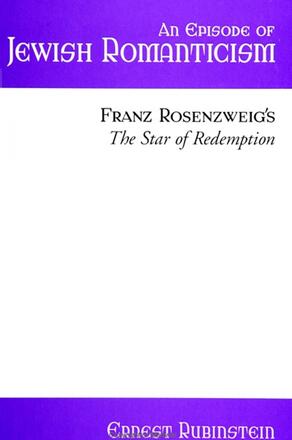
An Episode of Jewish Romanticism
Franz Rosenzweig's The Star of Redemption
Alternative formats available from:
Assesses the impact of romanticism on the thought of Jewish philosopher Franz Rosenzweig.
Description
Examining romanticism in the thought of Jewish philosopher, Franz Rosenzweig, this book compares his magnum opus, The Star of Redemption, with Leo Baeck's essay, "Romantic Religion," and Friedrich Schelling's Philosophy of Art, texts representing two distinct and, to a large extent, opposed interpretations of romanticism.
Rosenzweig's thought was shaped by two intellectual histories: Germany's and Judaism's. Because romanticism had such a definite impact on modern German writing and thought, it becomes a question whether, and to what extent, Rosenzweig, too, was a romantic. Part of the force of the question derives from the tensions sometimes noted between Jewish and romantic worldviews. In this book, author Ernest Rubinstein shows The Star of Redemption to be along the spectrum of ideas that extends between Baeck and Schelling, and thus illustrates a qualified romanticism.
Ernest Rubinstein is Librarian at the Ecumenical Library, The Interchurch Center, New York City and is Instructor at New York University's School of Continuing Education.
Reviews
"This book is more than interesting—it is nothing less than scintillating. The language is exquisite, elegant, almost sculpted. Every word is chosen with utmost decorum; the sentences are almost musical. All the while, the argument is tight and always gives the impression of moving on quickly and with the full control of the author—an interesting reflection indeed of much of the content.I think this work will become a classic. Not only does Rubinstein open up in invigorating fashion the pertinent writings of Baeck, Schelling, and Rosenzweig, he shows himself to be a rare, sensitive thinker. I think he is the first to thread a clear way through the most elusive part of the Star, Part III, and as well to shed his own light on it. This is a great service."—Barbara Galli, The University of Alabama